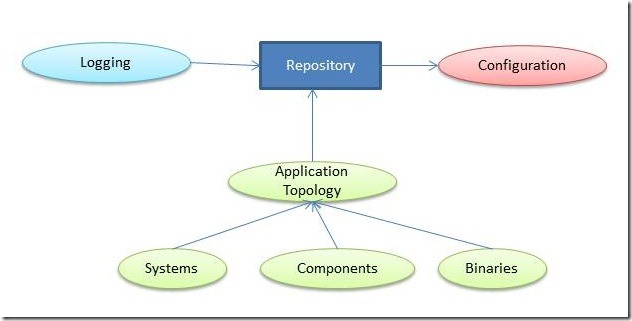Friday, September 30, 2011
Telesharp – An Application Repository for .NET applications
A year ago, we released SO-Aware as our first product in Tellago Studios. SO-Aware represented a new way to manage web services and all the related artifacts like configuration, tests or monitoring data in the Microsoft stack. It was based on the idea of using a lightweight SOA governance approach with a central repository exposed through RESTful services.
At that point, we thought the same idea could be extended to enterprise applications in general by providing a generic repository for many of the runtime or design time artifacts generated during the development like configuration, application description or topology (a high level view of the components that made up a system), logging information or binaries. It took us several months to give a form to that idea and implement it as a product, but it is finally here and I am very proud to announce the release today under the name of “TeleSharp”.
Telesharp provides in a nutshell the following features,
1. Configure your application topology in a central repository. Application topology in this context means that you can decompose your application and describe it in terms of components and how they interact each other. For example, you can tell that the CRM system is made up of a couple of WCF services and a ASP.NET MVC front end.
2. Centralize configuration for your applications and components. You can import existing .NET configuration sections into the repository and associate them to the different components. In addition, environment overrides are supported for the configuration sections. We provide tooling and extensions in Visual Studio for managing all the configuration, and a set of powershell commands for automating the configuration deployment.
3. Browse all the assemblies and types remotely in your application servers in a web browser using an interface similar to any of the existing .NET reflection tools. You can easily determine this way whether the server is running the correct version of your applications.
4. Centralize logging and exception management into the repository. You get different reports and a pivot viewer experience for browsing all the different logging information generated by your applications. In addition, TeleSharp provides different providers for pushing the logging information to the central repository using well-known frameworks like ELMAH, Log4Net, EntLib or even Windows ETW.

The central repository itself is implemented as a set of OData services that any application can easily consume using regular Http. You can read more details in this introductory post
At that point, we thought the same idea could be extended to enterprise applications in general by providing a generic repository for many of the runtime or design time artifacts generated during the development like configuration, application description or topology (a high level view of the components that made up a system), logging information or binaries. It took us several months to give a form to that idea and implement it as a product, but it is finally here and I am very proud to announce the release today under the name of “TeleSharp”.
Telesharp provides in a nutshell the following features,
1. Configure your application topology in a central repository. Application topology in this context means that you can decompose your application and describe it in terms of components and how they interact each other. For example, you can tell that the CRM system is made up of a couple of WCF services and a ASP.NET MVC front end.
2. Centralize configuration for your applications and components. You can import existing .NET configuration sections into the repository and associate them to the different components. In addition, environment overrides are supported for the configuration sections. We provide tooling and extensions in Visual Studio for managing all the configuration, and a set of powershell commands for automating the configuration deployment.
3. Browse all the assemblies and types remotely in your application servers in a web browser using an interface similar to any of the existing .NET reflection tools. You can easily determine this way whether the server is running the correct version of your applications.
4. Centralize logging and exception management into the repository. You get different reports and a pivot viewer experience for browsing all the different logging information generated by your applications. In addition, TeleSharp provides different providers for pushing the logging information to the central repository using well-known frameworks like ELMAH, Log4Net, EntLib or even Windows ETW.

The central repository itself is implemented as a set of OData services that any application can easily consume using regular Http. You can read more details in this introductory post
